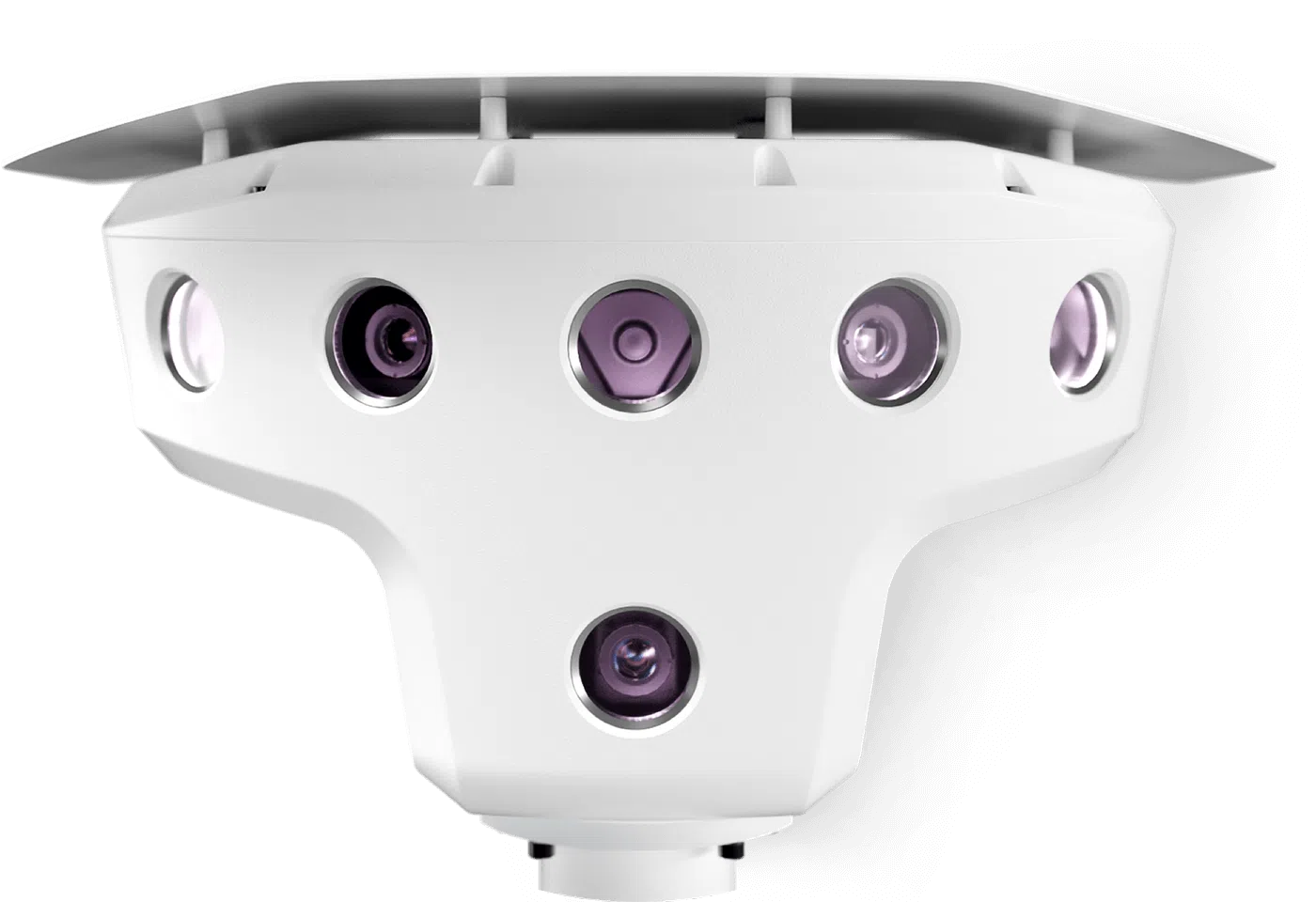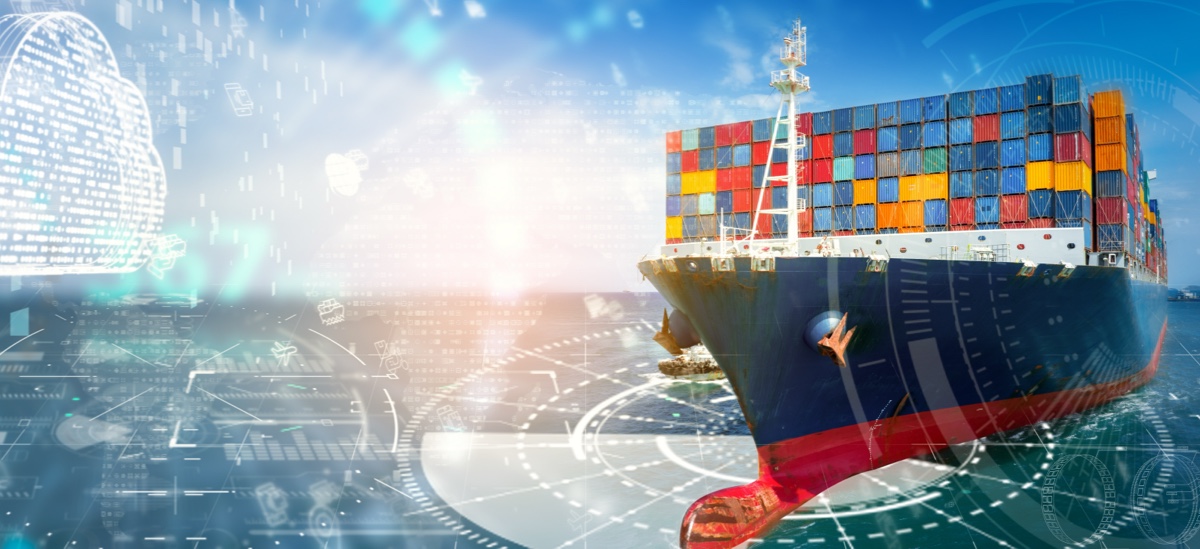Like most transportation sectors, shipping is facing growing exposure to and reliance upon AI and automation to achieve operational goals such as safety, efficiency, and environmental compliance. By introducing new technologies, processes, and business models that have the potential to transform the way ships traditionally operate, AI-based autonomous navigation platforms are setting the sails for a more efficient, safe, and compliant future. According to the World Maritime University’s report, the adoption of autonomous navigation platforms that operate under human supervision is expected to reach 11-17% by 2040. But as we navigate through these innovations, a fundamental question arises – what is the Return on Investment (ROI) of implementing such advanced technology?
Unlocking the Potential of AI- based Navigation Platforms in Shipping
AI-based maritime autonomous navigation platforms facilitate heightened operational precision and efficiency through advanced algorithms and machine learning, offering benefits ranging from route optimization, reduction in crew workload, adherence to regulatory mandates, and enhanced maritime safety. Before delving into the economic implications, it is essential to grasp the importance of weighing these advantages against the cost. Such a balanced approach aids stakeholders in making informed decisions regarding investments in these cutting-edge technologies.
The value proposition of AI-based navigational assistants has various aspects. Route optimization alone can directly impact the bottom line. A study by the IAMU suggests that AI-based route optimization can reduce fuel consumption by up to 10%, translating to substantial cost savings given that fuel accounts for a significant portion of operating expenses. Moreover, efficiency improvements mean vessels can undertake more voyages within the same timeframe, opening additional revenue streams.
By automating navigation tasks, crews are able to focus on other critical operations, decreasing the likelihood of fatigue-induced errors, which represent one of the most common human error-based incidents in shipping. This shift not only bolsters safety and operational reliability but also enhances the onboard working environment, making a considerable difference in the demanding life at sea.
The integration of cutting-edge sensors, AI algorithms, and real-time data analytics augments situational awareness in the shipping industry. These maritime collision avoidance systems offer a proactive approach to identifying and mitigating potential hazards with unprecedented precision and speed, safeguarding lives, cargo, and the marine environment.
The collective impact of these benefits underscores the transformative potential of AI-based autonomous navigation platforms in fleets, marking a significant leap toward more safe, efficient, and sustainable maritime operations. While there are evident advantages, accurately measuring the Return on Investment (ROI) of AI-based platforms in the shipping industry is a complex process. Although some benefits can be readily quantified through economic analysis, other factors require careful consideration and evaluation.
ROI Unveiled: Exploring the Full Potential of AI Navigation Platforms
Unlocking the true value of AI-based autonomous navigation platforms in the shipping industry goes beyond mere cost analysis; it demands a nuanced evaluation encompassing both tangible and intangible returns. Delving into the comprehensive ROI of such innovative solutions reveals a landscape where quantifiable benefits merge with qualitative advantages. These range from strengthening market competitiveness to enhancing operational efficiency through improved decision-making. The multifaceted nature of ROI presents a complex yet rewarding story. The following tangible and intangible aspects of ROI, reveal how AI-powered navigation platforms redefine operational efficiency in the maritime industry.
Fuel consumption and CO2 emissions reduction
AI-based route optimization delivers notable cost savings for shipping companies through reduced fuel consumption while concurrently supporting environmental sustainability objectives by decreasing CO2 emissions meeting IMO’s projected targets for reduced carbon footprint.
But not only route optimization applications contribute to fuel savings. Also situational awareness platforms, like Orca AI’s, can. Orca AI’s comprehensive data analysis reveals that maneuvers for collision avoidance typically take between 20 to 40 minutes. The Orca AI platform offers early warnings of potential CPA/TCPA violations and by this minimizes close encounter events in open seas. The early warning also significantly reduces the need for route deviations to avoid SMS violations. This proactive approach leads to fewer collision avoidance maneuvers and ultimately, less fuel consumed.
Human Cost Mitigation
By automating more navigation tasks, and reducing human intervention, AI-based systems may reduce the required onboard seafarers, directly impacting the bottom line.
Reputation and Market Competitiveness
Adopting advanced technologies can enhance a company’s market positioning and reputation, attracting premium clients who prioritize safety and efficiency. This indirect benefit can eventually translate into a competitive advantage, ultimately leading to increased revenues.
Efficiency and Information Sharing
The ability of autonomously navigated fleets to share safety-related information enhances decision-making and operational efficiency while cultivating ‘best in class’ behavior, setting new industry standards and translating into potential cost savings and improved resource utilization. and improving work conditions for crew members,
Workplace Conditions and Employee Productivity
Digitizing maritime operations with AI-based navigation platforms improves workplace conditions and boosts employee productivity by reducing administrative tasks and enabling engagement in higher-level tasks. This leads to higher morale, lower absenteeism, and increased productivity. Moreover, it enhances employee retention and attracts high-quality talent, addressing a key industry challenge.
Sustainability Initiatives and Public Image
Setting internal KPIs related to safety incident prevention as part of sustainability initiatives or corporate social responsibility (CSR) programs enhances public image and customer loyalty. While these initiatives may not directly translate into financial gains, they bolster long-term profitability and stakeholder trust.
Insurance Premium Reduction
In the same way as the automotive industry, the maritime insurance sector may be affected by the integration of new technologies. With improved safety records due to AI-based navigation assistants and situational awareness platforms, shipping companies are able to negotiate lower insurance premiums. This not only ensures long-term savings but also enhances the ROI of AI-based autonomous navigation platforms.
Partnerships, like the one between Orca AI and NorthStandard, highlight the insurance industry’s recognition of the value that AI-based technologies bring in mitigating risks, thereby offering a direct pathway to ROI through reduced operational costs. By adopting Orca AI’s situational awareness platform, members of the leading global marine insurer can leverage NorthStandard’s incentives to enhance operational safety.
Navigating the Middle Ground: Embracing AI for Balanced Shipping Operations
While calculating the ROI of AI-based autonomous navigation platforms involves navigating through complex and often intangible benefits, the cumulative effect of these advantages cannot be underestimated. Integrating such technologies offers a holistic enhancement to the shipping industry, touching upon operational efficiency, safety, compliance, and sustainability.
The main challenge that companies venturing into this brave new world of integrating AI-based autonomous navigation platforms will likely face is particularly in the realm of crew adaptation and acceptance. Crew members need to feel comfortable with these changes and be willing to work alongside the technology. To cope with such changes in the nature of work, it is imperative for crew members to re-skill and up-skill, ensuring their continued relevance and effectiveness in an increasingly automated environment.
Success in implementing digitization in the shipping industry depends on strong collaboration between shipping companies and the suppliers of AI and technology. This collaboration needs to be based on openness and flexibility. Only by working together in this way can companies achieve significant returns on their investments and fully realize the benefits of AI-based autonomous navigation platforms.









